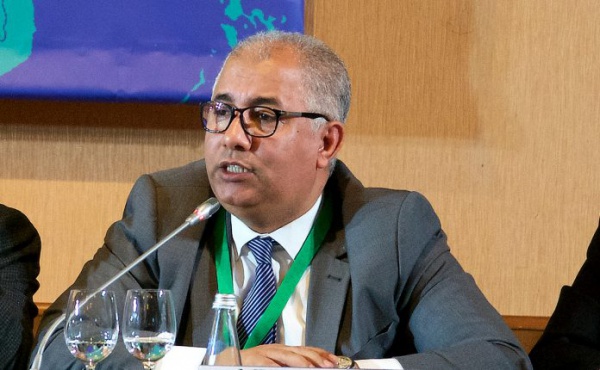Dr Mohammed Bechari, deputy chairman of the International Union for Strengthening Peace in Muslim Communities, made a statement at the third international forum of Journalists from Muslim Countries Against Extremism.

Thank you very much, Professor Popov.
I would like to thank all the members and participants of the Strategic vision group at this meeting.
I’m very thankful for the organization of this new meeting on countering terrorism and extremist ideology. Indeed, our region is now going through a very challenging time, like the rest of the world. We are suffering from the spread of heretic takfir ideas. We know how broadcast media can influence public opinion these days, and how online media can contribute to attracting new people into the ranks of terrorists. We know that in many parts of the world, in many world capitals, including in the United States, Europe, Africa there are serious issues arising from this threat of the spread of extremism and extremist ideology.
We see that many religious organizations these days make a special effort and go out of their way today to spread extremist ideas. We have seen such extremist groups in Croatia, in groups such as the Muslims of Europe or the Muslims of Latin America. We know there are many activities that can be undertaken to counter the spread of extremist ideology. Various meetings and conferences are now organized in different places all over the world. Just recently in Mecca there was a conference dedicated to the problems of the Sunnah and the necessity of peaceful coexistence of various movements.
We know that there is Jihadi Islam, which preaches fundamentalist ideas in its extremist narrative and preaches a holy war. We know that it is necessary to combat terrorism online, on digital media. We know that a representative of the Russian Interior Ministry spoke of how Russia engages in combating various forms of extremism through various frameworks.
Indeed, we are going through challenging period right now. We know that in the Persian Gulf countries, in the United Arab Emirates there is a whole network of think-tanks that a trying to counteract, to combat this information war and oppose the spread of extremism in mass media and online. This kind of think tanks and foundations are being established all over the countries of the Maghrib in order to counteract and to prevent the recruitment of young people into extremist groups or into becoming supporters of extremist ideology.
We know that soon it will be the conference hosted by Abu Dhabi, which will discuss and look at extremist operations online. It will be seen as a serious issue and there will be a discussion on how to oppose the use of digital media in spreading extremist ideology.
Over 50,000 people have been recruited into ISIS activities in Iraq thanks to and through the use of digital media. We know that different nations in the world suffer from the attacks by terrorist groups. And the governments are trying to combat those terrorist activities. ISIS has been very active online. And they are actively engage in producing digital media to promote these ideas.
It is necessary for us to ensure that we win this information war against the radical ideas. For that to be possible we need to unite. And this should be the essential idea for the intelligentsia, for the intellectuals of each of ours countries, with people who have shared values and ideas to stand up for to oppose extremism.
I would also like to stress that it is important to keep up proper communication between spiritual leaders and the clergy on the one hand and people working in the area of education. When this kind of a link or relationship is missing, it results in more terrorist supporters. We see it very clearly in Muslim countries. This lack of communication between the clergy and people from the educational system only makes it easier to spread the ideas of political, radical Islam.
This lack of communication undermines our counter-terrorism efforts. In December 2016 there was a conference in Abu Dhabi, which looked at how we should interpret notions such as jihad or takfir these days. This conference ushered a new stage in thinking over the terms that are used very frequently in the Muslim world today.
It is necessary for us to communicate in between our countries if we want to be able to put an end to extremist groups and extremist ideas. I would like to remind you of the event in Kazan, Tatarstan last year.
And I hope that jointly with the Muslims in Russia we would be able to join our efforts even more actively and vehemently. And that would help us shield young people in our countries from the corrupting influence of extremist groups.
At this time as we speak, there are to conferences taking place. One of them in Oman dedicated to the need to unite all Muslims in combating terrorism, and the other one an international conference in Cairo attended by Pope himself as well as representatives of several others religious groups including the Muslim world and Arab countries and President al-Sisi himself. Thank you very much.
GSV "Russia - Islamic World"
